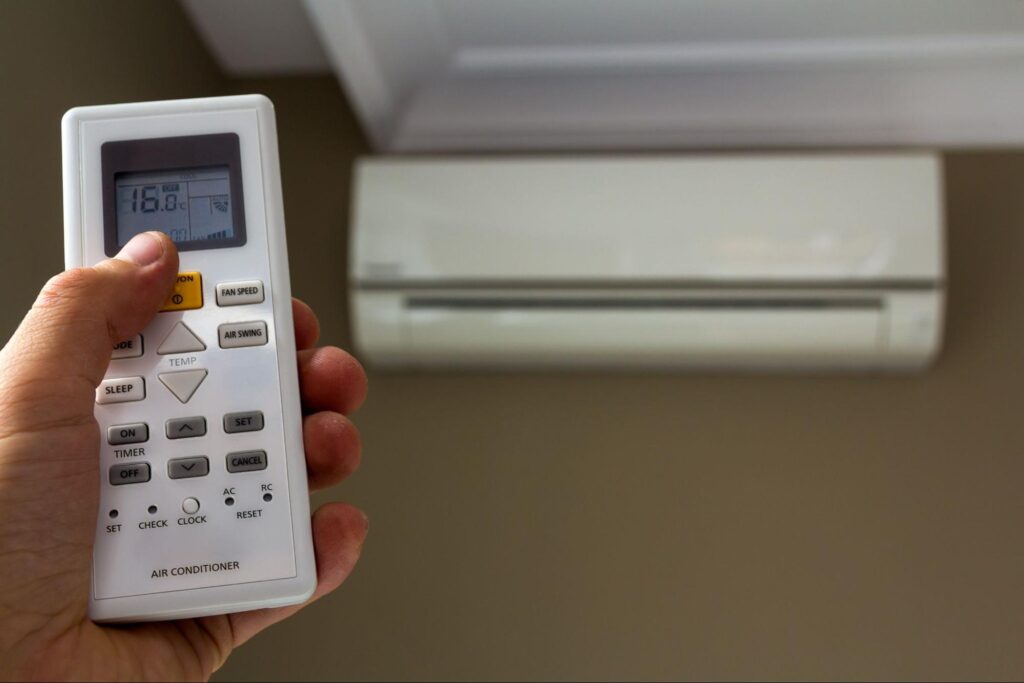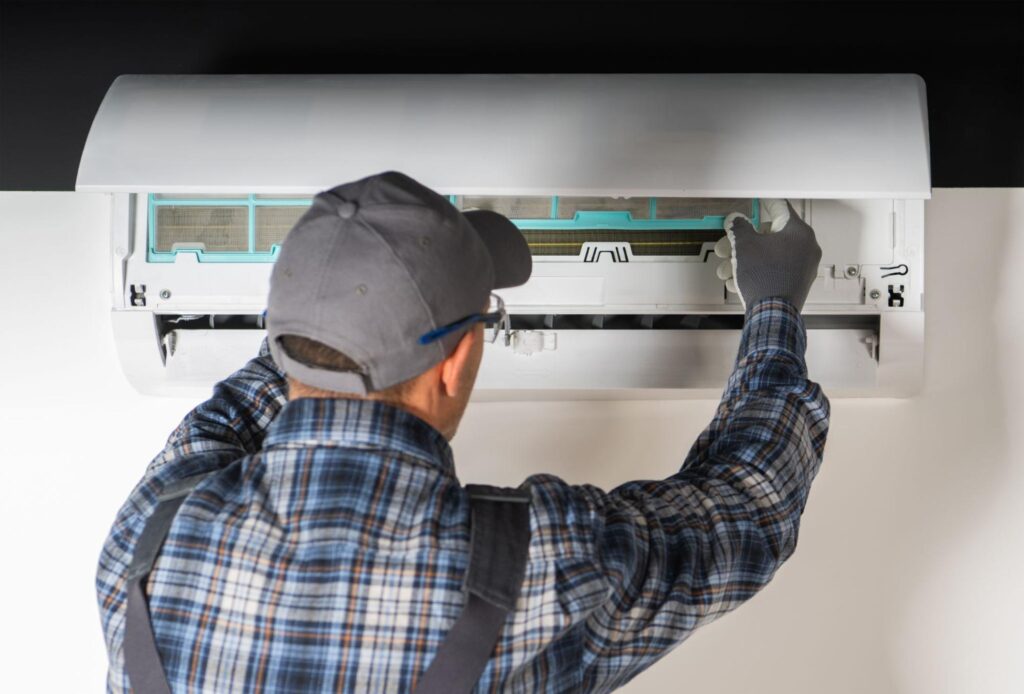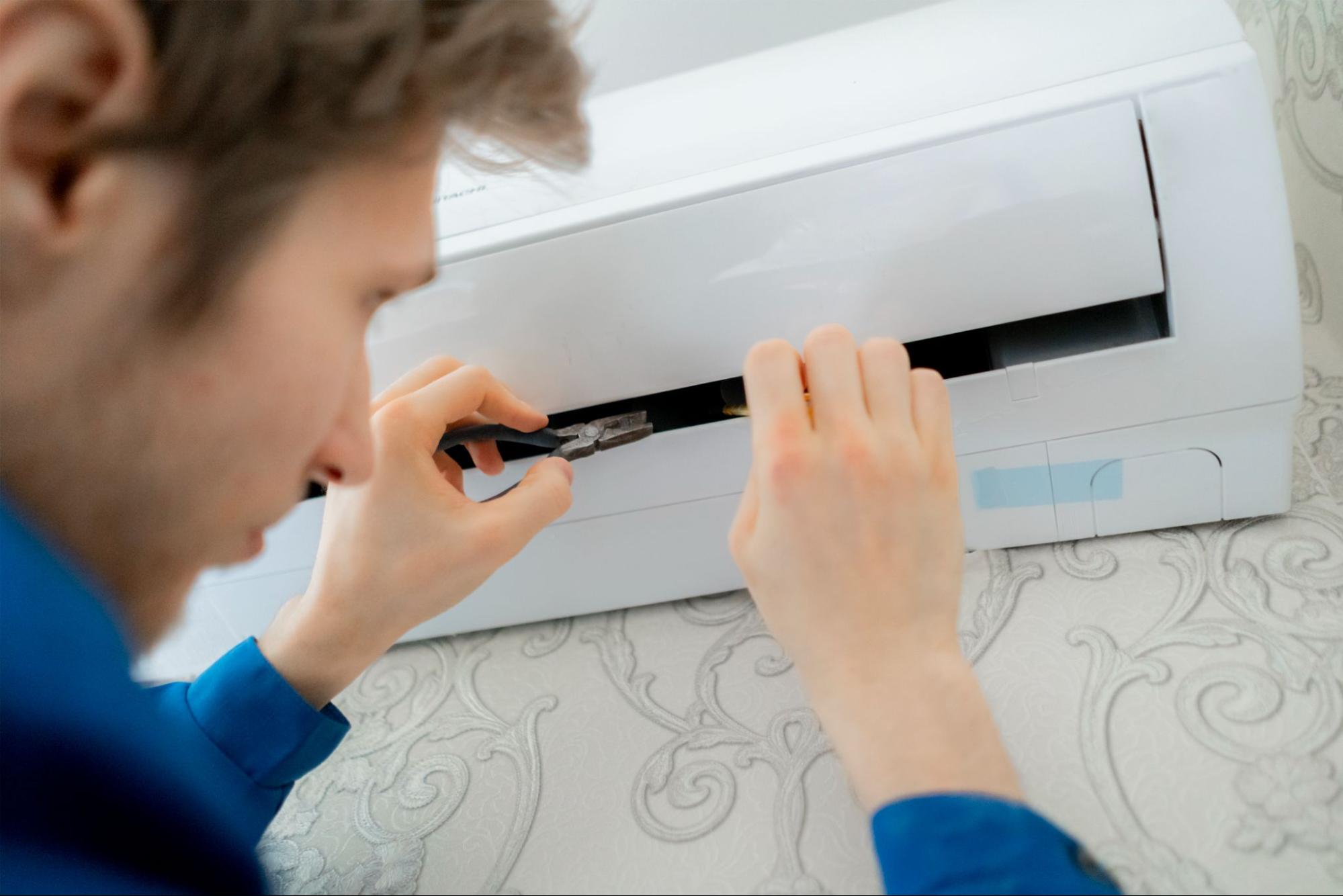Your ductless mini-split system can be up to 30 percent more energy-efficient than traditional HVAC units, but only if it’s properly maintained. For homeowners in St. Clair County, the humid summers and harsh winters put a real strain on ductless heat pumps. This can lead to higher energy bills, poorer indoor air quality, and premature system failure. This guide will explain why regular mini-split maintenance is essential, what you can do yourself, how S&P Heating’s professional tune-ups keep your system at its optimal performance, and how proactive care prevents common issues and saves you money. We’ll also cover when to schedule service, how pricing works, the environmental benefits, and what local customers have to say, providing you with a comprehensive plan for saving energy, breathing cleaner air, and extending the life of your system.
Why Mini Split Care is a Must for St. Clair County Homeowners
Consistent mini-split maintenance is the key to avoiding unexpected breakdowns in St. Clair County’s challenging climate. By regularly checking and servicing every part, from filters to refrigerant lines, you can maintain energy efficiency, protect your indoor air quality, and extend the life of your system. A well-maintained ductless unit runs more efficiently, uses less energy, and helps you avoid costly emergency repairs that can far outweigh the cost of routine service.
How Does Mini Split Care Boost Energy Efficiency and Lower Bills?
Cleaning or replacing dirty air filters and keeping coils clean reduces airflow resistance. This means your compressor doesn’t have to work as hard, using 20–30 percent less electricity. When refrigerant levels are correct and coils are free of debris, the heat exchange process works efficiently, resulting in direct savings on your monthly cooling and heating bills. In St. Clair County, where energy costs can soar during peak summer and winter months, these efficiency gains add up to significant annual savings.
How Does Maintenance Improve Your Home’s Air Quality and Your Health?
Dirty filters trap dust, pollen, and mold spores, which then get circulated throughout your home. Regularly cleaning filters and drain pans removes these airborne contaminants, reducing the amount of indoor pollutants that can trigger allergies and respiratory problems. Families in this area can experience fewer allergy flare-ups and asthma attacks when their ductless systems are properly maintained, leading to a healthier living space.
How Does Regular Care Extend Your Mini Split’s Life and Prevent Big Repair Bills?
Routine inspections can identify minor issues, such as worn wiring or small refrigerant leaks, before they develop into significant problems. Replacing inexpensive parts, such as filter screens or tightening loose connections, can prevent compressor burnout or coil damage, which often requires costly part replacements. With tune-ups twice a year, a ductless mini split can reliably serve your home for 15–20 years, much longer than the 8–12 year lifespan of units that are neglected.
Why is Maintenance Especially Important in St. Clair County’s Climate?
St. Clair County experiences humidity levels over 75 percent in the summer and temperatures below freezing in the winter. These conditions can speed up corrosion, coil icing, and mold growth. Regular maintenance prevents condensate line blockages that can cause water damage and mold, and it protects refrigerant seals from weakening in freezing temperatures. Your home comfort stays consistent, and your system’s reliability improves when it’s ready for the seasonal extremes.
How Are Evaporator and Condenser Coils Cleaned During Maintenance?
Our technicians apply a biodegradable cleaning solution to break down dust, pollen, and grease on the coil fins, then rinse them with low-pressure water. This process restores maximum heat exchange efficiency and prevents coil corrosion. We also straighten bent fins to improve airflow consistency, ensuring even temperature control across all zones.
Why Is Checking Refrigerant Levels Crucial for Mini Split Performance?
The right amount of refrigerant is essential for efficient heat transfer between your indoor and outdoor units. Too little refrigerant can cause the compressor to overheat and reduce cooling/heating power, while too much can lead to icing and system inefficiency. Precise refrigerant checks protect components and maintain stable energy use.
How Are Drain Lines and Electrical Connections Inspected and Maintained?
Our technicians use compressed air or a specialized vacuum to clear condensate lines, preventing moisture buildup that can lead to mold and water damage. We verify electrical connections using calibrated tools to ensure they are properly tightened and inspect safety devices, such as fuses and contactors, for signs of wear and tear. This dual inspection protects both the health of your system and the safety of your home.
| Maintenance Task | DIY Capability | Professional Benefit |
|---|---|---|
| Air Filter Cleaning | Easy removal and rinsing | Thorough sanitization and precise reinstallation |
| Coil Surface Cleaning | Light dusting | Chemical cleaning, fin straightening, and rinsing |
| Drain Line Check | Visual inspection for clarity | Complete flush and clog removal |
| Refrigerant Inspection | Not applicable | Leak detection, recharging, and performance tuning |
| Electrical Connection Check | Not applicable | Torque measurement and safety verification |
These combined efforts maintain airflow, heat exchange, and safety components in optimal condition, ensuring consistent indoor comfort and system reliability.
What Common Mini Split Issues Does Regular Care Prevent?

Preventative maintenance addresses the root causes of performance problems that often turn into emergency repairs. By focusing on airflow, refrigerant balance, and moisture control, routine care eliminates the most common failure points in ductless systems. You can avoid loss of cooling/heating power, water damage, and uncomfortable noises when you prioritize maintenance.
How Does Maintenance Prevent Reduced Cooling and Heating Capacity?
Dirt and debris on coils hinder heat transfer, forcing the compressor to run longer and struggle to reach your desired temperature. Clearing obstructions and ensuring the refrigerant is balanced restores full capacity, allowing your system to reach target temperatures quickly. Consistent maintenance prevents the gradual performance decline that leads to stalling or short-cycling under heavy loads.
Why Is Maintenance Key to Avoiding Water Leaks and Mold?
Clogged condensate drains can cause water to back up and overflow indoor pans, leading to structural damage and mold growth in ceilings or walls. Regularly flushing drain lines and cleaning drip pans prevents moisture buildup, thereby eliminating conditions that encourage mold growth. A dry, well-drained system protects your home’s structure and your family’s health.
How Can Maintenance Help Eliminate Strange Noises and Bad Smells?
Loose fan blades, worn bearings, and blocked airflow can create rattling, whining, or grinding sounds that indicate mechanical stress. Our technicians lubricate moving parts, tighten hardware, and balance fans to restore quiet operation. Cleaning evaporator coils and drain pans also removes organic buildup that causes musty or sour odors, improving your indoor comfort.
How Often Should Mini Split Systems Be Serviced in St. Clair County?
To keep your system running efficiently all year, schedule tune-ups to match seasonal demands. In St. Clair County’s varied climate, servicing in the spring and fall optimizes performance before the peak cooling and heating seasons. A consistent annual schedule reduces energy use and extends component life by addressing seasonal wear and tear.
What Is the Recommended Maintenance Schedule for Year-Round Efficiency?
For optimal performance, we recommend professional maintenance twice a year: in late March, before cooling demand increases, and in late September, before heating use picks up. You should perform DIY tasks, such as cleaning filters and conducting visual inspections, on a monthly basis. This routine helps prevent minor issues from escalating into major problems during extreme weather conditions.
How Does Seasonal Maintenance Prepare Mini Splits for Michigan’s Weather Extremes?
Spring tune-ups clear out winter dust, check refrigerant levels, and recalibrate defrost cycles to handle humid summers. Fall services focus on heat pump reversal checks, inspecting insulation on refrigerant lines, and calibrating defrost sensors to ensure reliable operation in subzero temperatures. These targeted adjustments protect against seasonal stresses and maximize efficiency.
What Factors Influence Mini Split Maintenance Pricing Locally?
Key factors include the number of indoor zones, the complexity of the unit model, the age of the equipment, and accessibility challenges, such as units installed high on walls. Travel distance for service calls, seasonal demand, and warranty requirements also affect labor rates. We provide customized quotes that take these details into account to ensure fair and honest pricing.
Can Homeowners Clean Their Mini Split Systems Themselves? What Are the Limits?
Yes, homeowners can perform basic cleaning tasks that help maintain essential airflow and the system’s visual condition. However, deep component servicing, handling refrigerant, and electrical inspections require professional training and specialized tools to avoid damage or safety risks.
When Is Professional Maintenance Necessary to Avoid Damage?
Chemical coil cleaning, refrigerant charging, and electrical safety testing are required for EPA-certified HVAC technicians. Attempting to access sealed refrigerant circuits can lead to system contamination and personal injury. Certified professionals ensure the integrity of components, compliance with regulations, and the safe and reliable operation of systems.
What Do Certified Technicians Recommend for Optimal Mini Split Care?
Our specialists at S&P Heating recommend bi-annual inspections timed with seasonal changes, diligent monthly filter checks, and promptly reporting any unusual sounds or smells. Technicians emphasize the importance of keeping outdoor units clear of debris and ensuring unobstructed airflow around all indoor zones to support balanced performance and longevity.
What Are the Environmental Benefits of Regular Mini Split Maintenance?
Well-maintained ductless mini splits operate closer to their designed efficiency, resulting in reduced electricity consumption and lower associated carbon emissions. By preventing refrigerant leaks and ensuring optimal heat exchange, routine care helps limit greenhouse gas release and minimize the environmental impact of your home’s climate control.
How Does Maintenance Reduce Energy Consumption and Carbon Footprint?
Clean coils and the correct refrigerant charge enable the compressor to operate more efficiently, reducing kWh usage by up to 30 percent compared to neglected systems. Lower energy demand means less fossil fuel is burned at power plants, directly reducing the carbon dioxide emissions linked to home comfort.
Why Is Mold Prevention Important for Healthy Indoor Environments?
Blocked drains and damp coil surfaces can lead to mold growth, releasing spores and mycotoxins that harm indoor air quality and occupant health. Regular maintenance eliminates moisture buildup, stopping microbial growth and promoting allergen-free living spaces that support well-being and environmental health.
Stay Efficient with S&P Heating’s Mini Split Expertise

Your mini split was a smart investment—now let’s make sure it stays that way. At S&P Heating, we specialize in servicing Bryant and Payne ductless systems, as well as all major mini-split brands. We offer maintenance services that prevent performance drops, surprise breakdowns, and sky-high energy bills. So, whether it’s cleaning filters, checking refrigerant levels, or inspecting outdoor units, our team knows what your system needs to run like new. Regular care helps you avoid expensive repairs, improve energy efficiency, and enjoy consistent comfort all year long.
Contact us today at (586) 250-0161 and ask about our Comfy Membership Plans, which include scheduled mini-split tune-ups, priority service, and exclusive discounts
Frequently Asked Questions
How often should you clean or replace mini split filters?
Filters should be cleaned every month and replaced (if applicable) every 3–6 months. Dust, pet hair, and seasonal allergens can reduce airflow and efficiency if neglected.
What are the signs that a mini split needs maintenance?
Common signs include uneven temperatures, strange noises, increased energy usage, or a blinking indicator light on your indoor unit. If your system doesn’t cool or heat like it used to, it’s time for a tune-up.
Next Up: Heat Pump Solutions for Macomb Township Homes
Considering switching to a heat pump or upgrading your existing one? Discover your options in our next article: Unlock Top Heat Pump Solutions for Your Macomb Township Home—where we break down energy savings, system types, and installation tips.



